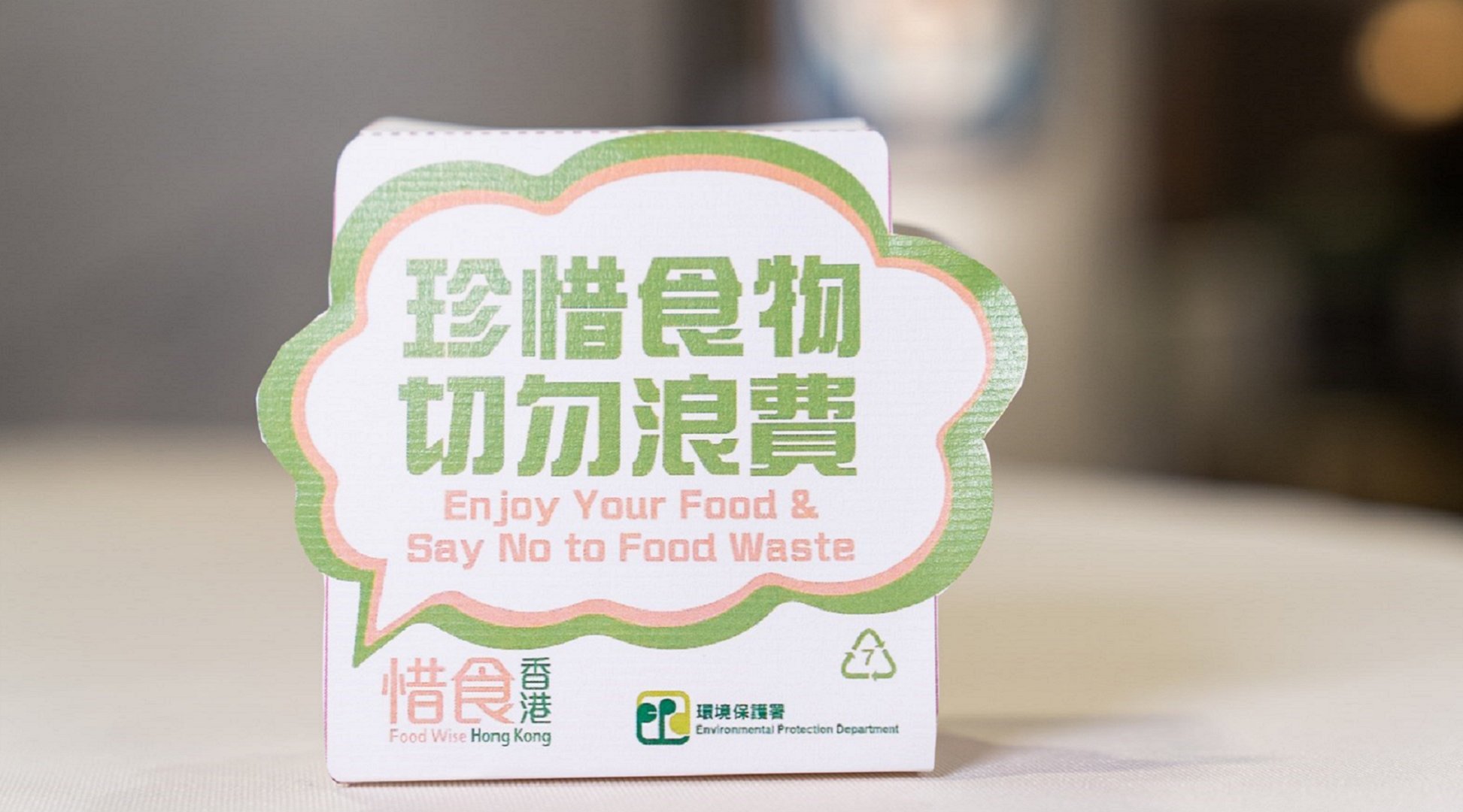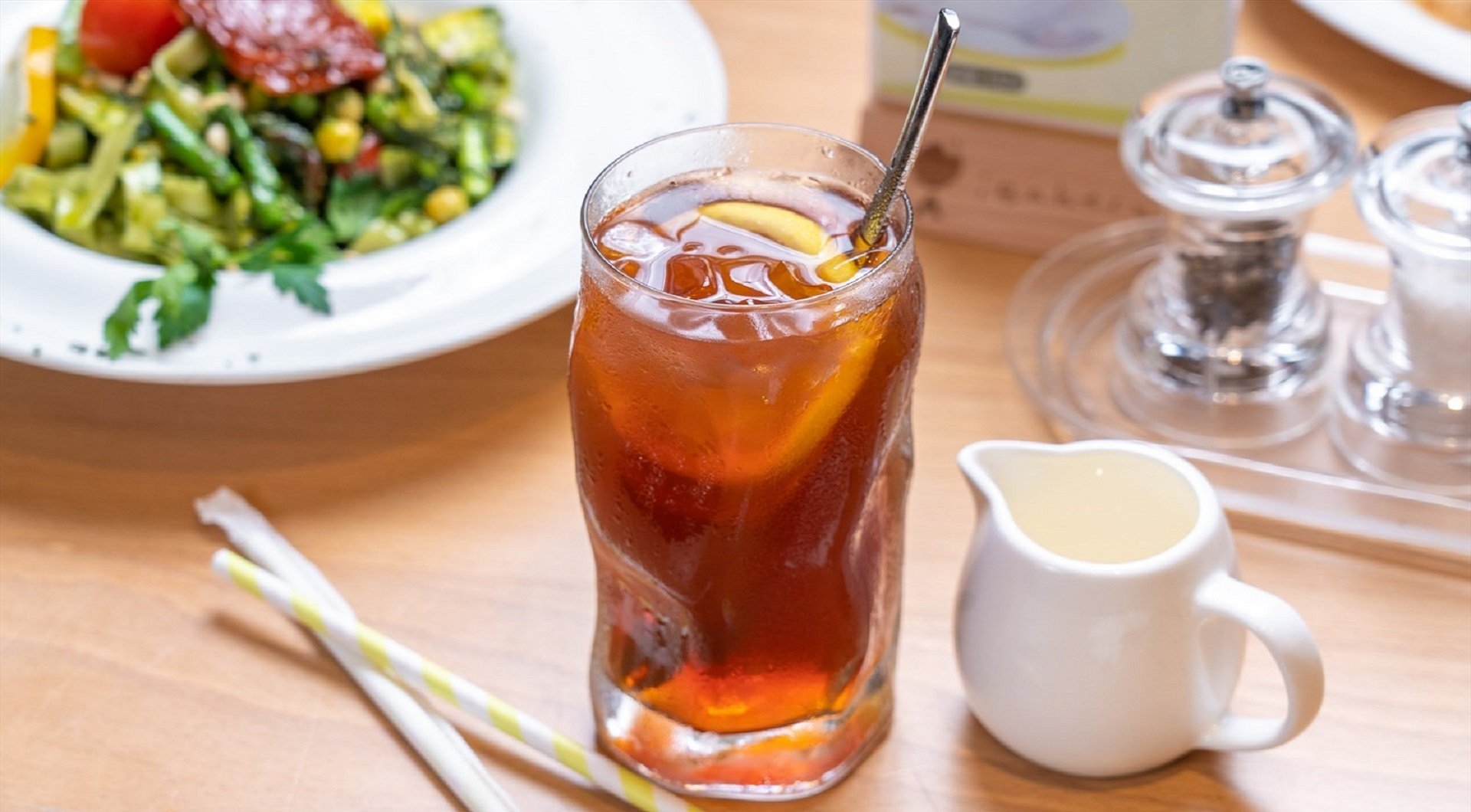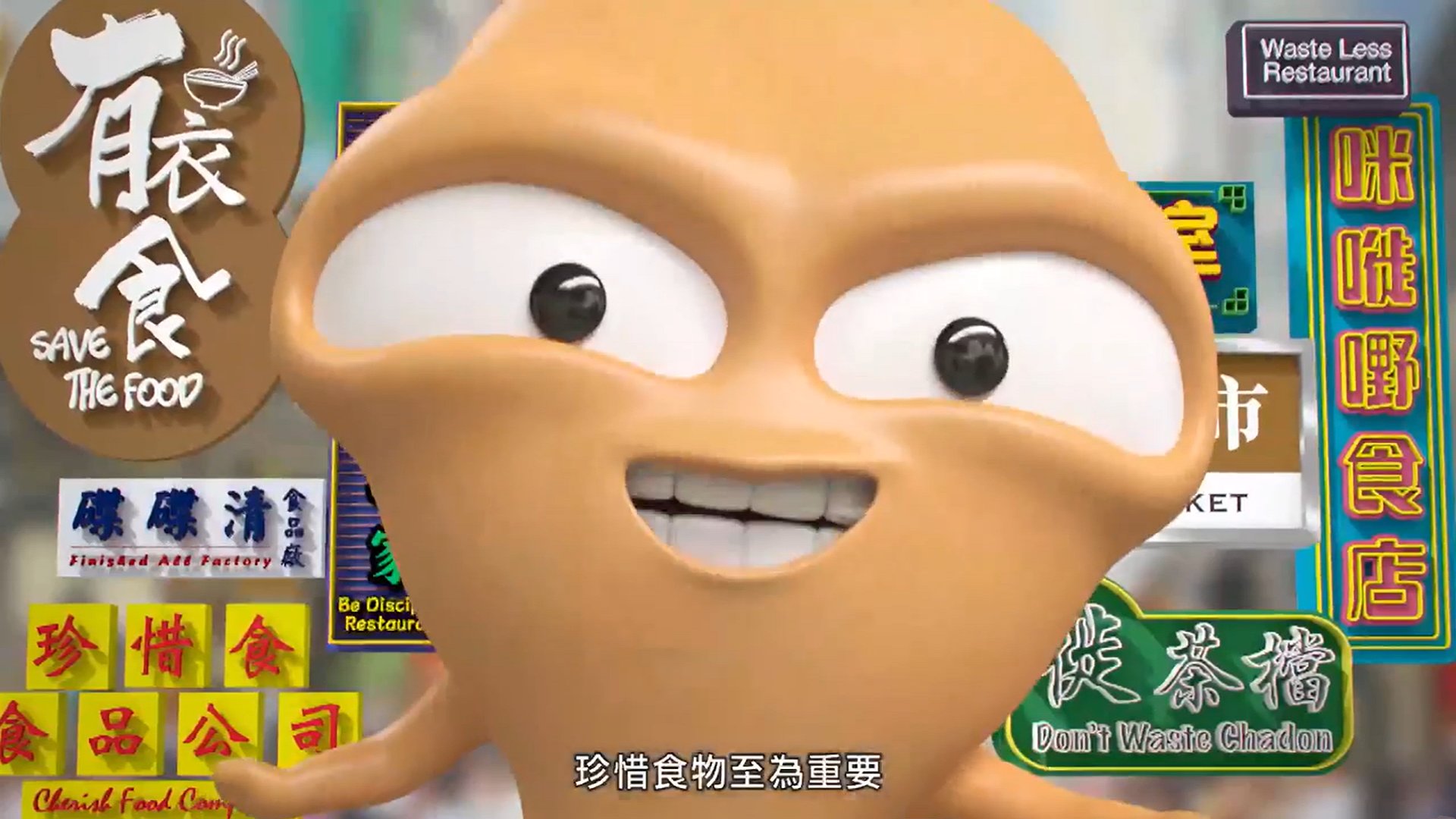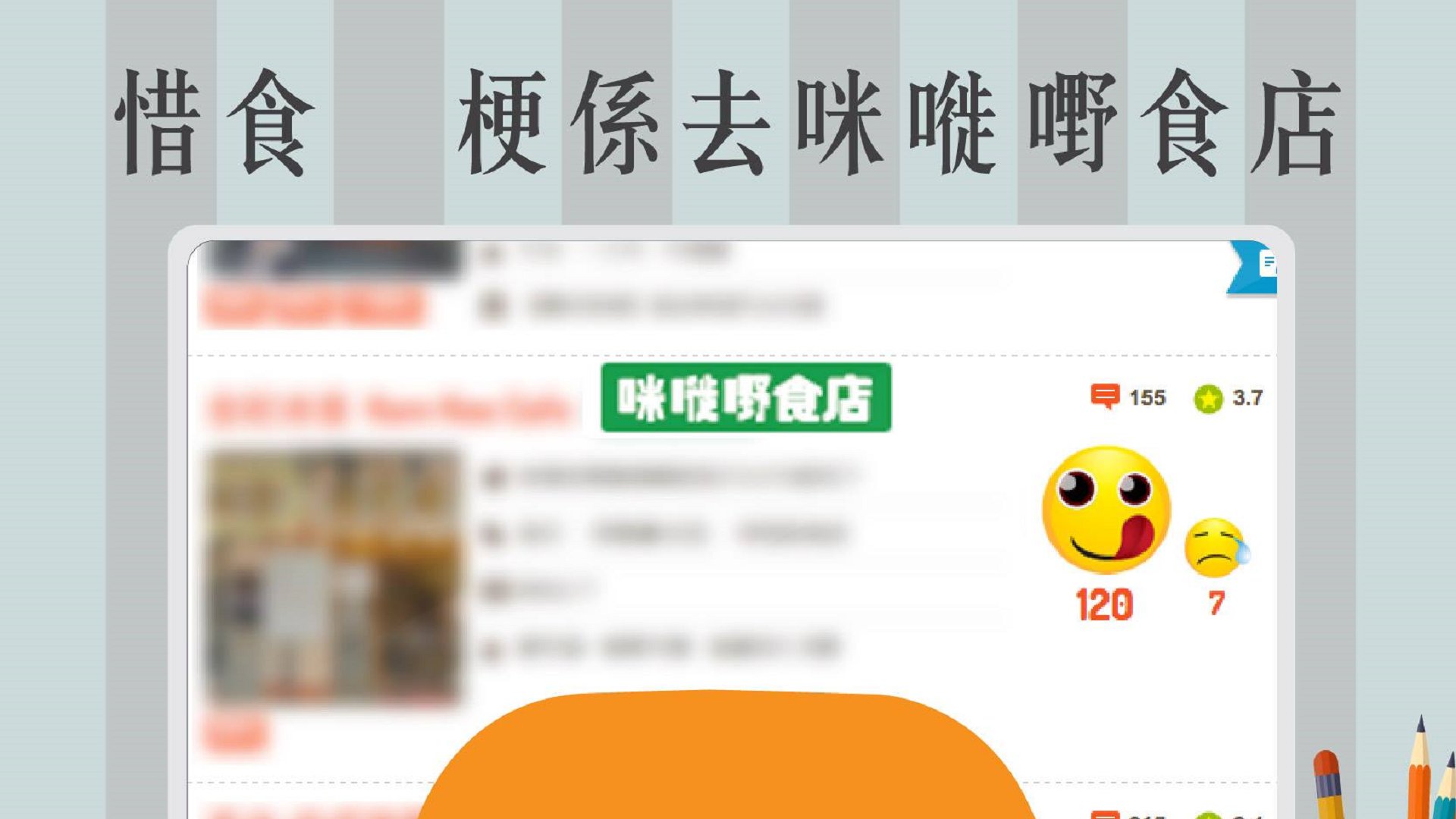Food Wise Hong Kong Campaign

The Food Wise Hong Kong Campaign, was launched by the former Environment Bureau in May 2013 to promote a food wise and waste less culture, and to instill behavioural changes in the community to avoid and reduce the generation of food waste at source through various schemes and activities, such as Food Wise Charter, Food Wise Eateries Scheme, and the publicity of the “Big Waster”,.
Campaign’s Objectives

- Promote awareness of the community on the food waste management problems in Hong Kong in support of government policies to achieve the visions in the Waste Blueprint for Hong Kong 2035 and the target of attaining carbon neutrality before 2050
- Encourage and facilitate the separation and collection of the unavoidable food waste to enhance recycling of resources and help achieve carbon neutrality target
- Coordinate efforts within the Government and public institutions to lead by example in food waste reduction
- Instill behavioural changes in the community at individual and household levels that will help reduce food waste generation
- Draw up and promote good practices on food waste reduction of commercial and industrial establishments
- Encourage leadership in the commercial, industrial and community sectors to take action and share best practices
- Facilitate food donation between the establishments with surplus food with charitable organizations in the community
- Encourage avoidance of the use of disposable plastic tableware and reduction in food packaging
Steering Committee
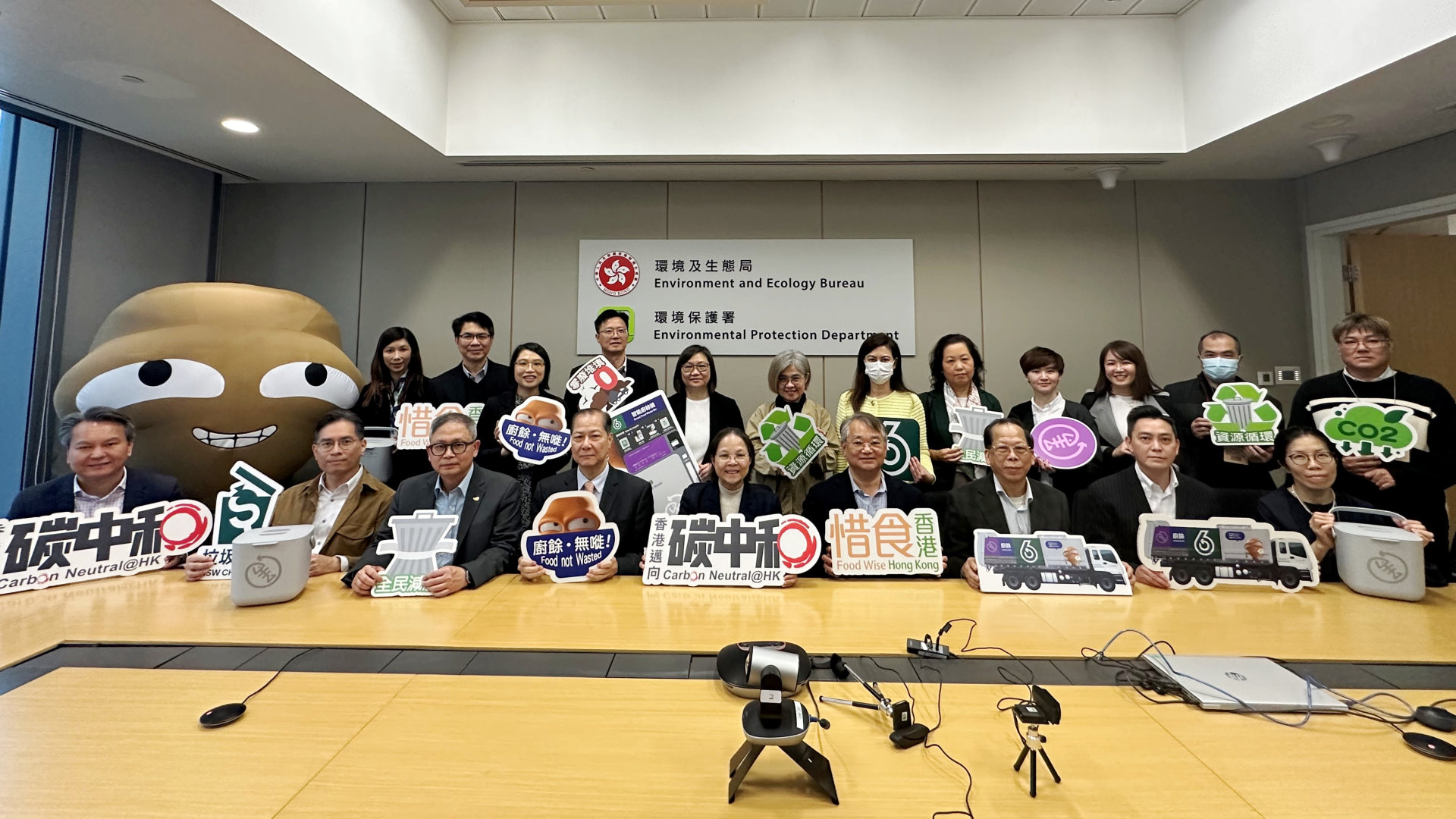
Terms of Reference
The Food Wise Hong Kong Steering Committee was set up on 3 December 2012 and tasked to formulate and oversee the implementation strategy of the Food Wise Hong Kong Campaign to accomplish the objectives of the Campaign.
Membership
The Food Wise Hong Kong Steering Committee is chaired by the Secretary for Environment and Ecology with members drawn from various sectors including catering, hotels, property management, environmental hygiene services, education, advertising, green groups and relevant government departments.
Membership List of Food Wise Hong Kong Steering Committee
Chairman
Secretary for Environment and Ecology
Members1
Mr Kiyotaka ANDO
Ms CHAN Shin-kwan
Ms HO Pui-suen, Judy
Mr KAM Lin-wang, Carrel
Dr KEUNG Yim-mei
Dr LAI-gor, Amie
Mr Leung Chun-wah
Mr LING Wai-hon
Mr MAK Man-chiu
Mr MAU Kwok-sheung
Ms NG Man-yin, Connie
Ms NGAN Tsz Ching, Bridget
Mr POON Kin-leung
Mr TAM Siu-sing
Ms TOA Hang-yin
Mr WONG Ka-kin, Ken
Mr WU Shui-lun, Alex
Mr YIP Hing-kwok, Wilson
Mr YIP Ka-yun
Representative of the Education Bureau
Representative of the Food and Environmental Hygiene Department
Representative of the Home Affairs Department
Representative of the Housing Department
Representative of the Information Services Department
Representative of the Social Welfare Department
Secretary
Assistant Director (Waste Reduction)
Note1: with effect from 1 July 2023 for 2 years.
Food Wise Charter
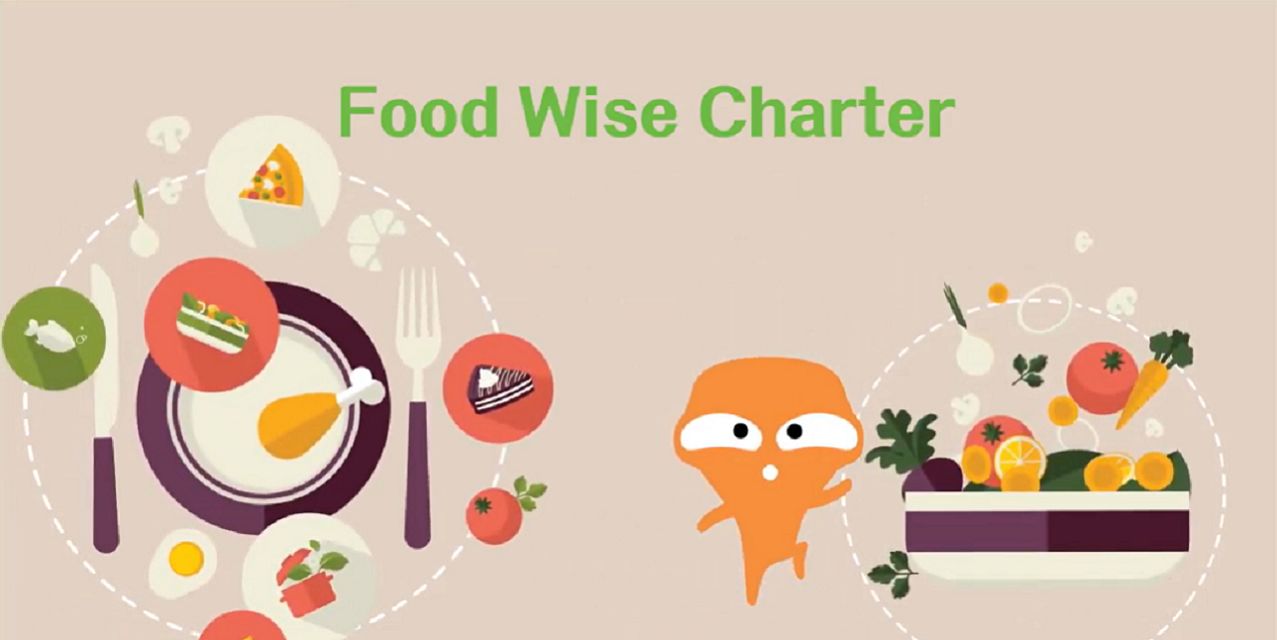
Introduction
The Food Wise Charter is to :
✓Encourage Hong Kong businesses/organizations in adopting measures to reduce food waste generation within their establishments or through the services and products they provide; and
✓recognize the waste reduction and recycling efforts of those organizations.
Charter’s Statement
We understand and agree that
✓The waste problem in Hong Kong is becoming increasingly severe. We discarded about 1.51 kg of municipal solid waste per person per day. Food waste is the largest source of Hong Kong’s municipal solid waste. In 2022, about 3,300 tonnes of food waste were disposed of at landfills every day, accounting for about 30% of municipal solid waste.
✓ Wasting food not only increases operational costs, but also wastes all the land, water resources, fertilizer and labour needed to grow food.
✓Disposal of food waste in landfills not only occupies valuable land resources, it also emits greenhouse gases during the decomposition process. In fact, food waste is a reusable organic material that can be converted into useful resources through recycling.
✓To realise the vision of sustainable development, we need to change the way we currently produce and consume our natural resources, reduce food waste at source, and recycle unavoidable food waste for conversion into useful resources for the benefit of our community.
To contribute to reducing food waste from the community, we are committed to
✓Promoting best practices and behavioral changes to reduce food waste generation.
✓Drawing up plans within our organizations to make relevant stakeholders aware of and accept best practices in food waste reduction and recycling.
✓Implementing plans with measurable targets to reduce food waste generation in our organisations and business settings.
✓Encouraging and supporting organisational management to conduct in-house waste audits and to improve waste management performance based on the results and recommendations of the audits.
✓Supporting the “Food Wise Hong Kong Campaign” and similar initiatives to encourage behavioral and cultural changes that engender respect for and cherishing of our food and natural resources.
✓Advocating for and adopting recipes that make use of food trimmings.
✓Supporting food donation activities.
✓Promoting food waste recycling.
Food Wise Eateries Scheme
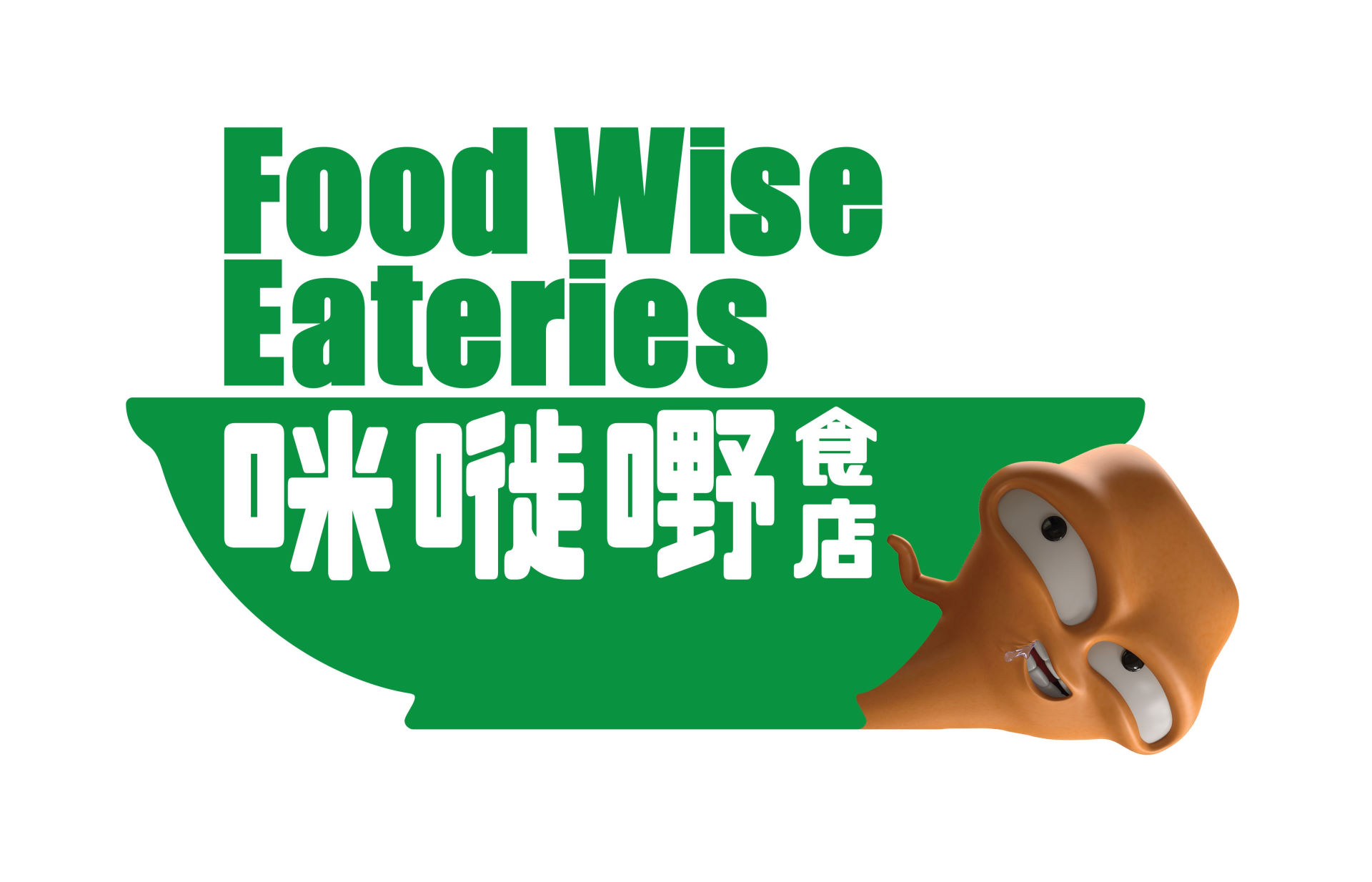
Background
The Food Wise Eateries Scheme (the Scheme) was launched by the Environmental Protection Department (EPD) in 2015. It aims to encourage eatery outlets to reduce food wastage and food waste generation at source together with customers by offering portioned meals and adopting food waste reduction measures. Applications are accepted all year round and are FREE of charge.
Privileges and Benefits to Participants
Participants of the Scheme will be awarded with a Food Wise Eateries (FWE) accreditation status if they comply with the assessment criteria and will be granted with corresponding Stickers for display at their shops for customers to identify. In addition, the name of participated eateries with address will be promulgated on “Openrice” restaurant searching platform and this webpage to build up green eatery image and free promotion.

Requirement of Scheme
Applicants should submit a valid Business Registration Certificate relating to its business and Food Licence/ Permit (issued by the Food and Environmental Hygiene Department) or Club (Safety or Premises) Ordinance Certificate of Compliance (issued by the Home Affairs Department).
The Food Wise Eateries Scheme (the Scheme) has the following three classes to recognise the different levels of efforts and commitment of the participating eateries in being “Food Wise” and the reduction of waste:
- Silver Class
- Gold Class
- Diamond Class
Please refer to the Application Guideline for details on the assessment criteria for each class.
Requirements for Silver Class
Applicants should fulfill the following requirements to achieve the Silver Class of the Scheme:
- Convey food wise message to customers using promotional materials (applicants can download Food Wise promotional materials provided by the Environmental Protection Department)
- Promote the message for consuming all ordered foods or taking away leftovers
- Adopt AT LEAST ONE of the following food portioning option / food waste reduction measures:
- i. Provide options of less rice (other main foods are also applicable, e.g. noodles / congee / spaghetti / potato & vegetable / salad / French fries)
- ii. Provide options on the number of courses in set menus (e.g. starter / soup / desserts are optional, 6 main courses or less for banquet, fewer number of courses for set meals)
- iii. Provide portion size options for a variety of food (e.g. steak, fish, chicken)
- iv. Provide portion size options for pizza / dish / meal (e.g. regular size, large size or small size)
- v. Provide portion size options for dim sum / sushi and relevant dishes (e.g. choices for different number of pieces per dish)
- vi. Serve hors d’oeuvre / side dishes / snacks only upon request by customers or provide options of no hors d’oeuvre / side dishes / snacks
- vii. Pre-portion or set smaller portion for food in buffets
- viii. Provide incentives to encourage customers to consume all ordered food
- ix. Provide on-site meal portioning instead of pre-packed meal box
Requirements for Gold Class
Applicants should fulfill the following requirements to achieve the Gold Class of the Scheme:
- Meet the requirements for Silver Class
Adopt THREE additional food waste reduction measures with each measure coming from different categories (A to C) below:
A. Management and Commitment- Sign Food Wise Charter
- Formulate a Company Food Management Policy with the aim to reduce food waste
- Monitor food waste generation and identify food waste reduction measures
B. Training and Promotion- Provide training on food-wise culture and food waste reduction to staff
- Assign at least ONE staff as Food Wise Manager / coordinator / ambassador to deliver corresponding training to staff and ensure they will convey the food wise message to customers
C. Food Processing- Adopt FIFO (first-in-first-out) system for stored food
- Store food in controlled storage environment, conduct regular inspections and maintain proper functioning of storage facilities to prevent food spoilage
- Adopt recipes that make good use of surplus food and food trimmings
Requirements for Diamond Class
Applicants should fulfill the following requirements to achieve the Diamond Class of the Scheme:
- Meet the requirements for Gold Class
- Adopt AT LEAST ONE additional measure below:
- i. Donate surplus edible food to food recycling banks or non-profit making organisation
- ii. Participate in food waste recycling
Application Process
Those who are interested in joining the Scheme are required to submit the duly completed Application Form and required supporting information to the Scheme Secretariat by mail, fax or email. The Application processes are as follow:
| Stage | Eateries (Applicants) |
|---|---|
| Step 1: Application Submission |
|
| Step 2: Initial Assessment | Provide further information if necessary |
| Step 3: Status Approval |
|
| Step 4: Ongoing Support |
|
Food Wise Promotional Materials
Food Wise Talks
To raise public’s awareness of the food waste problem in Hong Kong and cultivate a “Food Wise and Waste Less” culture, the Food Wise Hong Kong Campaign regularly arranges talks for schools and organizations to introduce topics on food wise and food waste reduction and recycling. The talks are FREE of charge.
If you are interested in signing up for a food wise talk, please email foodwisehk@epd.gov.hk or contact the Secretariat at 3690 7853 for registration.
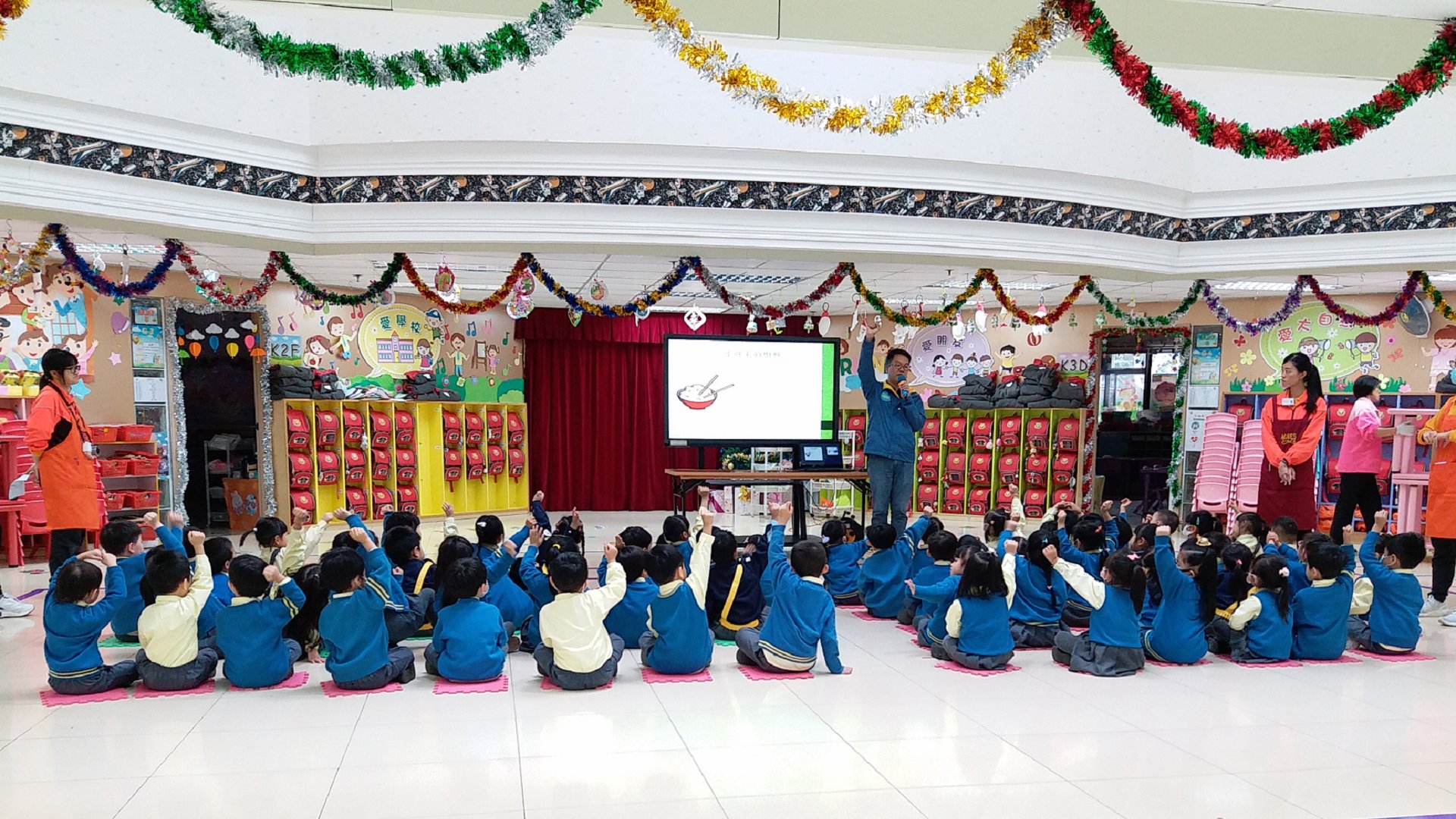
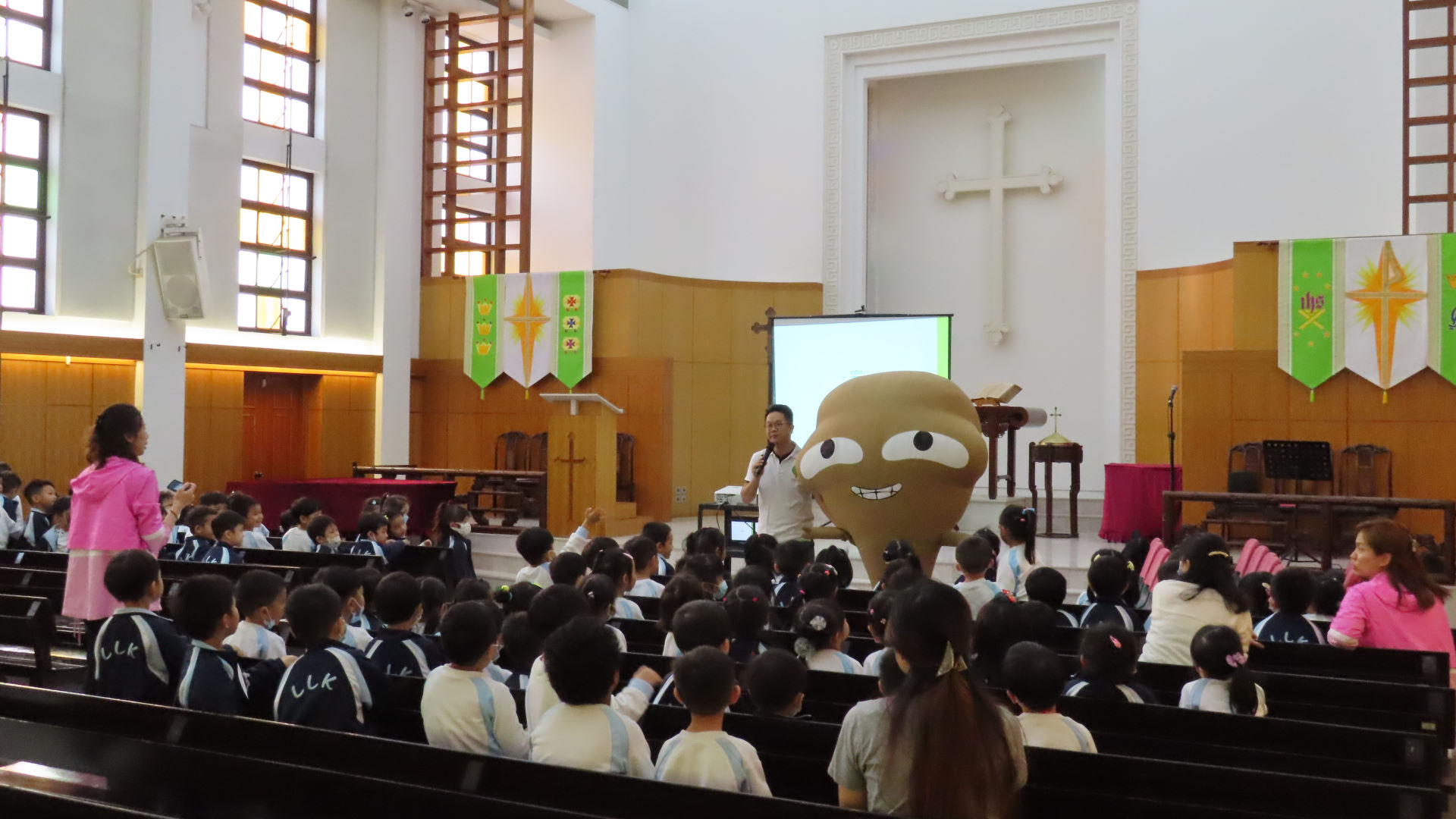
Food Waste Reduction Tips
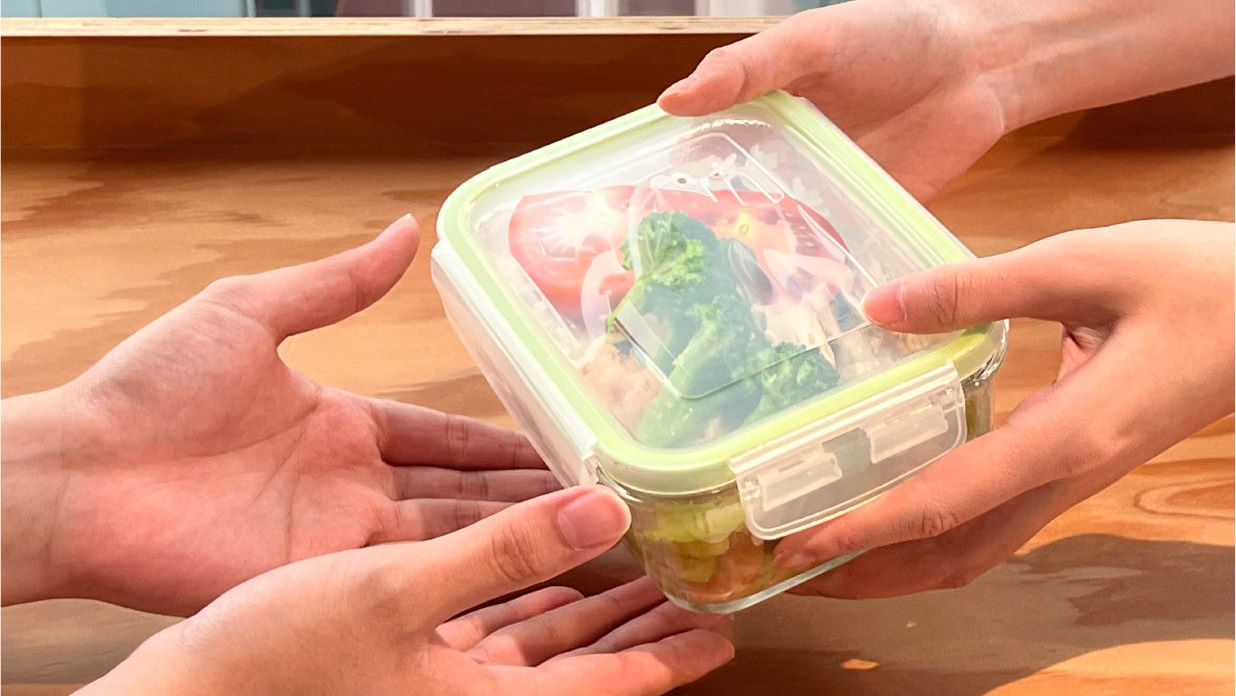
Think before you buy
Have a detailed shopping list to avoid over-purchase
- Take stock of your food at home and make a shopping list.
- Stick to your buying plan, instead of being a victim of sales pitches.
- Buy individually packed food if you have a small family and share bulk purchases with friends and neighbours.
- Properly manage, and check the food in your fridge and cupboard (e.g, quantity and expiry dates) to avoid buying duplicates, over purchasing and food from expiring.
Think before you cook
Ask yourself how much you can eat before you cook.
- Before cooking, ask yourself and others how much they want to eat.
- Consider light-portioned food if there are only a a few people for the meal.
- Many light-portioned recipes are available on the internet. Try those recipes to save money and waste less.
Think before you order
Order food according to your needs, if you don’t want leftovers.
- Think how much you can eat before you order. Choose suitable portions to avoid over-ordering.
- Ask for "Less rice" if necessary.
- If the portion is too large, share the dish with your friends. This can help avoid wasting food!
- When you are eating out, always take leftovers home. You can have a free lunch next day. Save money and waste less food!
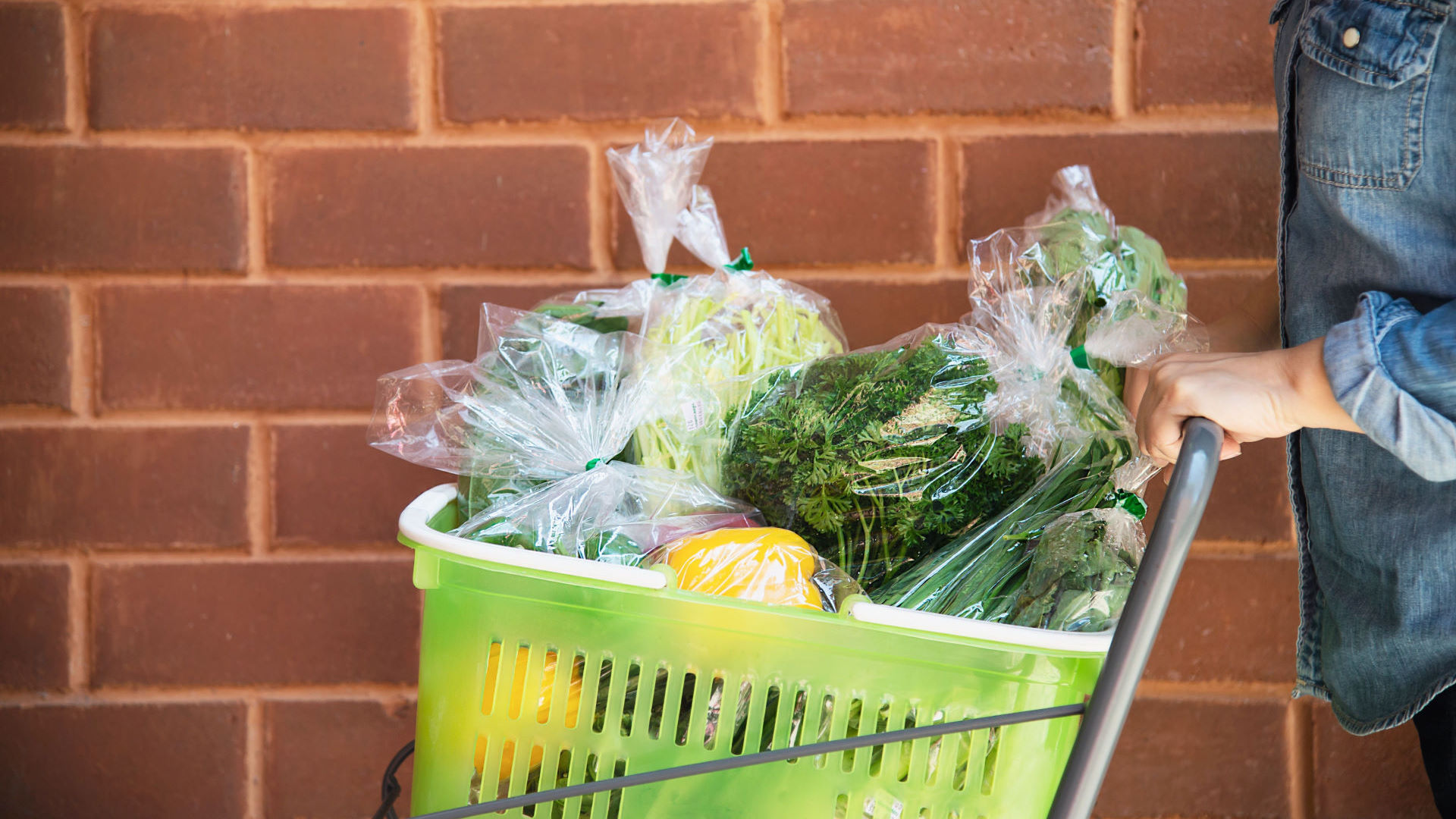
Food Waste Reuse Tips – Cleaning and Planting
- Rice-rinsed water can be used for planting and cleaning
- Coffee grounds can be used for removing odor, cleaning and preventing insects
- Chemical detergents can be replaced by homemade eco-detergents with tea bags and various fruit peels
- Banana peels can be used as oil cleaner and keep the shoes shine
- Grinded egg shells can be used as fertilizers for planting
- Recycled oil can be used to make eco-soap
Food Waste Reuse Tips – Dinning
- Make use of the unavoidable food waste such as fish bones and shrimp heads to cook soup or other dishes
- Use excessive cooked rice to make fried rice or cook with soup to make a delicious dish
- Rip the cooked meat into hair-like pieces to make shredded pork and freak shark fin soup
- Overripe bananas can be stored at freezer and mixed with milk to make banana shake
- Tangerine peel after dehydration under sunlight can be used to make dessert and cook with congee to enhance flavor
- Preserve tangerine in salt for months to make a salty tangerine which treats sore throat
Food Wise Recipes
To enhance the public's awareness of food wise, we have invited celebrity chefs from Hong Kong to share tips on reducing food waste. They will provide innovative recipes that utilize leftovers, with the aim of spreading the message of valuing food and reducing waste.
Click here for more

